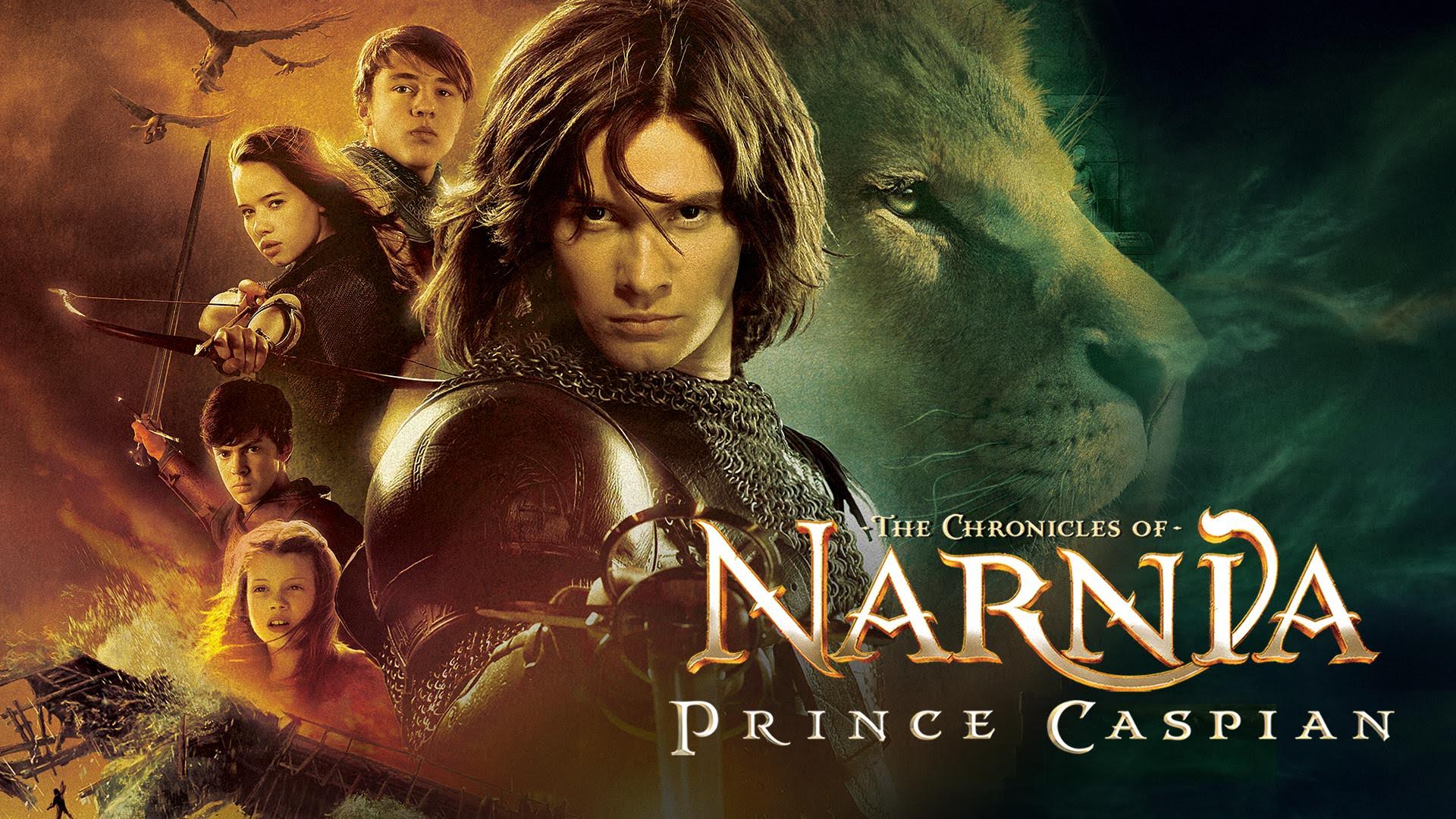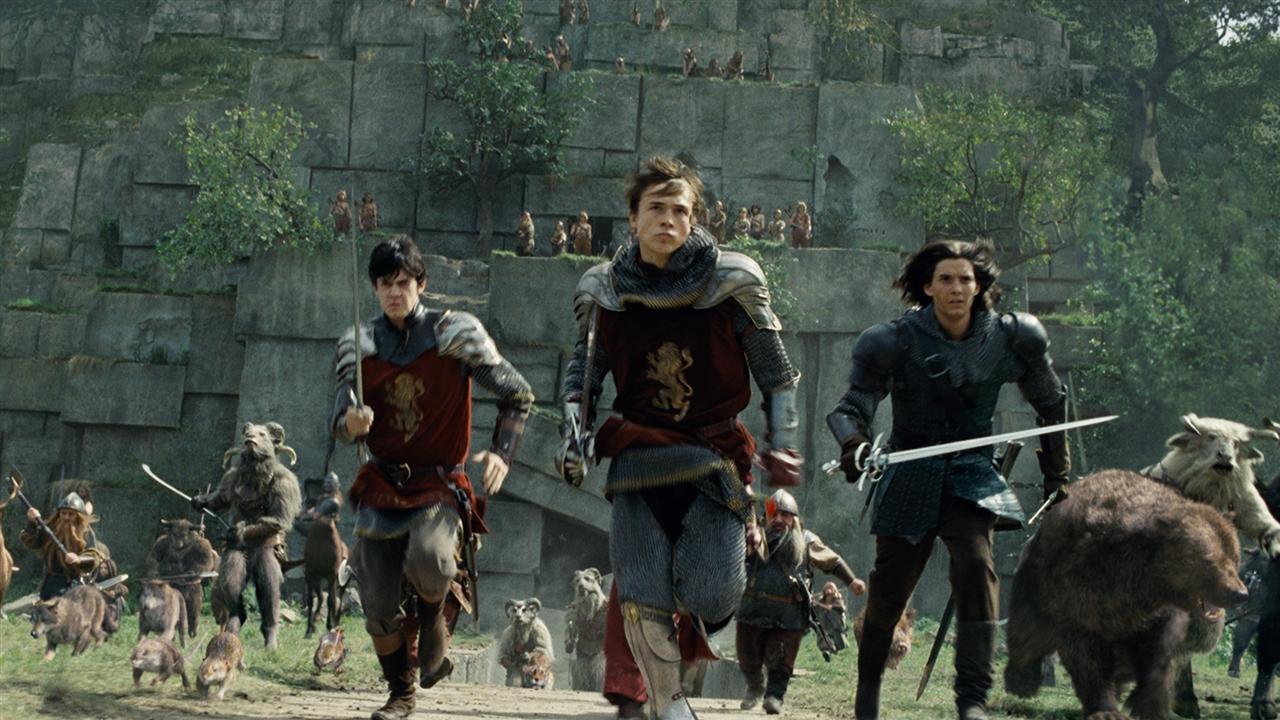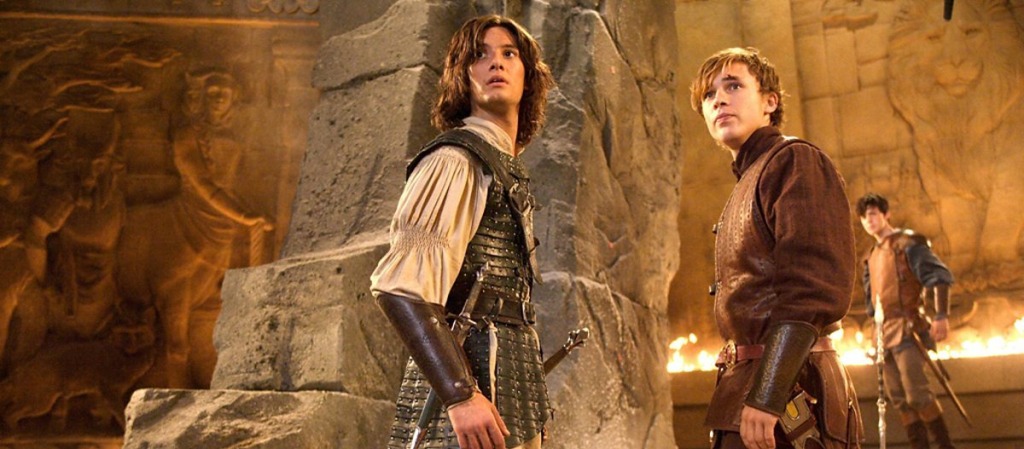The Chronicles of Narnia: Prince Caspian (2008)

The Chronicles of Narnia: Prince Caspian is a 2008 epic fantasy film directed by Andrew Adamson. It is the second installment in the film series based on The Chronicles of Narnia books by C.S. Lewis. The film continues the adventures of the Pevensie siblings, who return to Narnia to help Prince Caspian reclaim his rightful throne. With its grand scale, action-packed sequences, and exploration of themes like loyalty and bravery, the film offers an exciting continuation of the beloved Narnia saga.
The plot of Prince Caspian picks up a year after the events of the first film. The Pevensie siblings—Peter, Susan, Edmund, and Lucy—are once again transported to Narnia, only to find that the once vibrant and magical land has fallen into disarray. The old Narnia is now ruled by the Telmarines, an invading human empire that has conquered the land and driven the magical creatures into hiding. Prince Caspian, the rightful heir to the throne, flees from his evil uncle, King Miraz, and seeks help from the Pevensies and the ancient creatures of Narnia to restore peace and justice.
One of the central themes in Prince Caspian is the struggle for power and identity. Prince Caspian, played by Ben Barnes, is a young prince torn between his loyalty to his uncle, King Miraz, and his desire to restore Narnia to its rightful inhabitants. As he learns about the true history of Narnia, he becomes determined to fight for freedom, even if it means going against the people he once trusted. The Pevensie siblings also undergo personal growth, especially Peter, who struggles with the responsibilities of leadership and his fear of failure.
The film is filled with thrilling action sequences that keep the audience engaged. From intense battle scenes to daring escapes, the film successfully brings the magical world of Narnia to life. One of the most memorable moments is the climactic battle between the forces of Prince Caspian and King Miraz, which showcases impressive special effects, large-scale set designs, and a stirring musical score. The visual effects are also used creatively to depict Narnia’s fantastical creatures, such as talking animals and mythical beings, adding to the film’s enchantment.

The performances in Prince Caspian are strong, with the cast delivering compelling portrayals of their characters. Ben Barnes as Prince Caspian brings depth and sincerity to the role, making the audience sympathize with his internal conflict. William Moseley, who plays Peter, gives an emotionally nuanced performance as the older brother trying to live up to the expectations of being a leader. Anna Popplewell, Skandar Keynes, and Georgie Henley also reprise their roles as Susan, Edmund, and Lucy, providing solid support and capturing the essence of the Pevensie siblings.

The film’s visuals and direction further enhance its storytelling. Andrew Adamson, who also directed the first Narnia film, maintains the magical atmosphere of the world while adding a darker, more mature tone to match the story’s themes of war, responsibility, and growing up. The cinematography beautifully captures the lush landscapes of Narnia, from the dense forests to the majestic castles, allowing viewers to immerse themselves in the magical world. The film’s score, composed by Harry Gregson-Williams, complements the epic nature of the story, heightening the emotional impact of key moments.

In conclusion, The Chronicles of Narnia: Prince Caspian is a captivating and action-filled continuation of the Narnia saga. With its compelling characters, thrilling battles, and stunning visuals, the film successfully brings C.S. Lewis’s magical world to life. It explores important themes such as loyalty, bravery, and the quest for justice while offering an exciting adventure for both younger and older audiences. As the second chapter in the Narnia series, Prince Caspian continues to be a memorable and entertaining part of the saga, offering hope and inspiration through its tale of courage and redemption.











